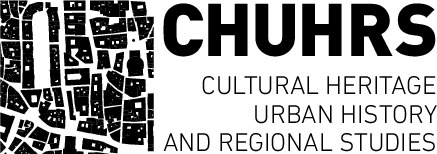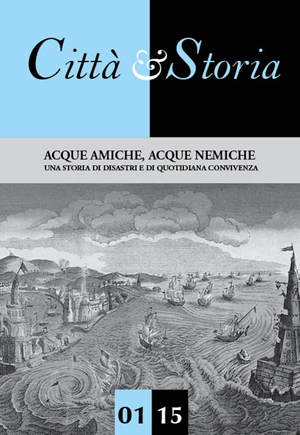Iniziative del CROMA
ROME PROBLEMS AND METHODS FOR THE HISTORY AND ANALYSIS OF THE CITY
Summer school course of specialization
Roma, Università degli Studi Roma Tre,
dal 12/9/2005 al 24/9/2005
UNIVERSITA' DEGLI STUDI ROMA TRE CROMA (CENTRO DI ATENEO PER LO STUDIO DI ROMA) Rome Problems and methods for the history and analysis of the city SUMMER SCHOOL Course of Specialization Rome, 12-24 September 2005 The school is open to Italian and foreign graduates holding either Bachelor’s or Master’s degrees and to Ph.D. students. The purpose is to provide students with an opportunity for an all-round consideration of the city, starting with an extraordinarily rich and complex case study: Rome. The methodological approach will consist of an interdisciplinary analysis of the direction of urban transformation and of in depth studies encompassing archaeology, geology and natural sciences, city planning, history, art and architecture history, literature and entertainment, economy and demography. The contemporary city will by analysed using a long term prospective, attempting to highlight the complex historical layering of the urban structure, beginning with antiquity. Special attention will be given to research sources and tools as well as to cartography and other forms of city representation. A specific section will address geographic information systems (G.I.S.) and the new research possibilities they offer by means of connecting vectorized cartography and databases. The School has been established within the cooperation program between the CROMA and the Archivio storico Capitolino and is sponsored by the City Council-Culture Department and the Italian Association of Urban History (AISU). The school activities will be divided between classroom and «on site» (archives, museums, libraries, archaeological and naturalistic sites) lessons as well as field work for specific areas of study. There will be an approximate total of 75 hours of lectures and exercises, in addition to approximately 25 hours of laboratory and meetings, the equivalent of 4 CFUs (university credits), subject to confirmation by the competent academic authorities. The lessons will be held in Italian. The School activities will be coordinated by a scientific council made up of: Liliana Barroero, Maria Teresa Caciorgna, Giulia Caneva, Paolo D’Achille, Paola Falcioni, Renato Funiciello, Luigi Goglia, Daniele Manacorda, Roberta Morelli, Paola Pavan, Alberto Racheli, Caterina Ricciardi, Eugenio Sonnino, Carlo M. Travaglini. A maximum of 30 students will be admitted to the school. The enrolment fee for the course is 280 euros. An arrangement with a hotel will be made for those students requiring lodgings in Rome (estimated cost approximately 40 euros, per night and person, for a double room). Some scholarships will be awarded to cover the enrolment expense. For two scholarship recipients coming from developing countries and with a low family income, it may be possible to provide free lodgings and meals. Class attendance is required. At the conclusion of the course, all students who have participated without default will receive a certificate of attendance. Those wishing to enrol must present a pre-enrolment application, using the attached form, in which they must briefly indicate their reasons for wishing to attend the school. The application must be accompanied by: - Copy of Bachelor’s Degree, validated by the Italian diplomatic representative; - Curriculum vitae; - Any additional document that they consider pertinent (a letter of presentation, references, publications, etc). The applications must be sent to CROMA-Univesità Roma Tre, piazza Campitelli, 3 – 00186 Rome (Italy). Those students who will graduate within the summer session 2005 may apply sub condicione, subsequently completing the documentation. The admissions commission reserves the privilege of calling the candidates for an interview or asking for an integration of the documentation. Should the established maximum number of students not be reached, late applications may be taken into consideration. Those wishing to apply for a scholarship must present a specific application no later than 19 July 2005. This application must include a letter of presentation by a University faculty member or a functionary of an Italian Cultural Institute of the Ministry of Foreign Affairs as well as documentation guaranteeing the candidate’s knowledge of the Italian language (if not an Italian citizen). The candidates who wish to have the scholarship include room and board must present documentation – validated by the Italian diplomatic representative – relative to family income. For additional information please contact the CROMA office: e-mail: croma@uniroma3.it tel. 0039.06.57374016 fax 0039.06.57374030 Website: http3://host.uniroma3.it/centri/croma/ TEMI DEL CORSO Roma oggi: il governo della complessità Riflettere sulla città Università e città Le fonti e i luoghi della ricerca Bibliografia romana Roma e il suo territorio Ambiente naturale e antropizzazione Dinamiche della popolazione di Roma La Corte di Roma Roma capitale Roma negli anni del fascismo Roma in cifre Economia urbana contemporanea Rappresentazione ed evoluzione urbana GIS e analisi urbana Siti e funzioni urbane Geografia dei mercati Geografia delle botteghe ed attività produttive Il Ghetto e il Monte di pietà Archeologia e città Gli scavi in corso La Crypta Balbi Dalla collezione privata al museo pubblico L’area del Campidoglio I Musei capitolini Il Museo di Roma Il Parco dell’Appia Antica L’immagine di Roma nella iconografia L’immagine di Roma nella letteratura 0 La Roma del Belli Roma e i viaggiatori L’immagine di Roma nel cinema La città e le acque La città e il mare Anzio, Nettuno, Astura, Tor Caldara Conservato e perduto Rapporto beni culturali Discussione laboratori Incontri con testimoni L’attività di docenza sarà svolta dai componenti del Consiglio scientifico della Scuola e da altri docenti delle università romane, nonché da funzionari di istituzioni culturali. Le lezioni e le attività di laboratorio si terranno il mattino (9-13) e il pomeriggio (14,30-18,30) dal lunedì al venerdì. Alcune attività potranno svolgersi in orario serale ed anche nelle giornate di sabato 17 e 24 settembre e domenica 18 settembre.

